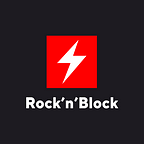Why 2024 is the Year for Blockchain Game Development
What is Blockchain Game Development?
Blockchain game development, or GameFi development, refers to the integration of blockchain technology into the gaming ecosystem. Unlike traditional games that operate on centralized servers, blockchain games leverage decentralized networks to provide a more transparent, secure, and immersive gaming experience. By integrating elements such as non-fungible tokens (NFTs), decentralized finance (DeFi), and play-to-earn mechanics, GameFi is changing how games are created, played, and monetized.
Blockchain Game Development Market Overview in 2024
The Web3 industry really took off in Q1 2024. According to DappRadar, there was a big jump in the number of daily unique active wallets (dUAW), up to 7.7 million. That’s a 77% increase from the previous quarter. This upward trend was also seen in the blockchain gaming sector, which ended the quarter with an impressive 2.1 million dUAW, representing a solid 59% increase compared to the previous period. What’s more, blockchain gaming is still a big part of the Web3 industry, with 30% of the total Unique Active Wallets.
Top Gaming Blockchains by Average dUAW
Blockchains play a pivotal role in game development by providing a decentralized and transparent infrastructure for creating, playing, and monetizing games. Variants of blockchains differ in their consensus mechanisms, scalability, and transaction costs. Choosing the best blockchain for game development depends on factors such as the desired level of decentralization, transaction speed, and cost-effectiveness for the specific game project.
Here is a list of top gaming blockchains by dUAW:
- Polygon — 1.2 M
- Ronin — 695k
- Solana — 677k
- BNB Chain — 642k
- SKALE — 632k
Top Blockchain Games
When it comes to on-chain game activity during Q1 2024, the clear winner was browser-based social RPG Pixels. It was originally launched on the Polygon blockchain, but then relaunched in November 2023 on the Sky Mavis’ Ronin chain, and it found immediate success. In fact, because of the decline of Alien Worlds and Splinterlands, Pixels has been the most popular blockchain game in terms of its daily active unique wallets since December.
Key Trends in Blockchain Game Development
1. Diverse Incentive Structures: Quest-to-Earn, Learn-to-Earn, and other evolving structures offer players opportunities to earn rewards, driving engagement with tangible incentives.
2. Play-to-Airdrop: This trend rewards social media engagement alongside gameplay, fostering community building and broadening blockchain network activity.
3. Metaverse Integration: Games increasingly blur virtual and physical realities, creating immersive, interconnected worlds for socializing and collaboration.
4. NFT Integration: Non-fungible tokens revolutionize ownership, enabling players to truly own in-game assets, creating tradable collectibles, and enhancing engagement and revenue streams.
These key trends in blockchain game development exemplify the dynamic and innovative nature of the industry, driving forward the adoption and evolution of blockchain technology in gaming while reshaping player experiences and interactions within virtual worlds.
Business Benefits of Blockchain Game Development
1. Enhanced Security and Transparency: Blockchain’s decentralization and immutability enhance security and transparency, mitigating fraud and building trust among players.
2. New Revenue Streams through Tokenization: Tokenizing in-game assets as NFTs introduces new revenue streams through token sales, auctions, and in-game purchases, fostering vibrant player-driven economies.
3. Access to Global Markets and Decentralized Communities: Blockchain transcends geographical boundaries, providing access to a global audience and fostering decentralized communities, expanding market reach and fostering collaboration.
4. Player Engagement and Retention: Innovative gameplay mechanics like play-to-earn incentives and NFT-based rewards drive player engagement and retention, incentivizing continued gameplay and enhancing loyalty.
5. Integration of DeFi Features: Integrating decentralized finance features like staking and yield farming offers players financial incentives and investment opportunities within the game, enriching the gaming experience and promoting financial growth.
Embracing blockchain technology gives developers and businesses a way to innovate, monetize, and grow in the ever-changing gaming industry. As more and more companies start using blockchain technology in their games, those who are quick to embrace it will be the ones who benefit the most.
Blockchain Game Development Genres
Blockchain game development spans diverse genres, each offering unique experiences:
Strategy Games: Test players’ tactical prowess and resource management skills, often integrating blockchain economies for asset ownership.
Role-Playing Games (RPGs): Immerse players in narrative-rich adventures, allowing customization and fostering play-to-earn dynamics.
Collectible Games: Centered on acquiring and trading digital collectibles, leveraging NFTs for ownership and value.
Virtual Worlds: Provide expansive environments for exploration and creation, with decentralized governance and player-driven economies.
Sports and Racing Games: Mirror real-world competitions, offering tokenized rewards and ensuring fairness through blockchain.
X-to-Earn Games: Incentivize various in-game actions, from physical activity to learning, utilizing blockchain for rewards and verification.
Casino Games: Replicate traditional casino experiences, but with enhanced transparency, fairness, and security afforded by blockchain.
Developers should choose genres based on audience preferences and integrate blockchain features thoughtfully. Passion and creativity are essential for success in this competitive industry, resonating with players seeking authenticity and innovation.
Conclusion
When we look at the state of blockchain gaming in 2024, it’s clear that the industry is full of promise and potential. Despite some initial financial hurdles, the dedication and innovation driving the creation of new games and advancements in technology signal an exciting trajectory ahead. In the next few years, we could see blockchain gaming become mainstream, offering experiences that go beyond what we can imagine today.
As the blockchain gaming industry continues to gain momentum and evolve, now is the perfect time to embark on blockchain game development. By embracing innovation, staying on top of market trends, and fostering a passion for creation, developers have the chance to shape the future of gaming and carve out a prominent role in the growing blockchain gaming ecosystem. So, seize the moment, take the leap, and join the ranks of trailblazers who are shaping the next chapter of blockchain gaming.
